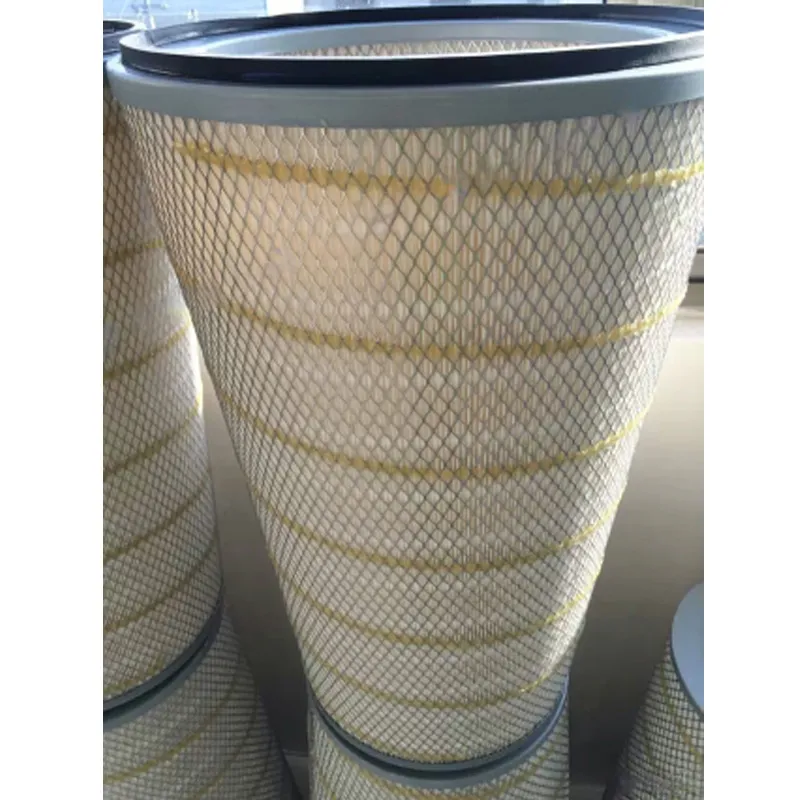 Tel:
+8618931101301
Tel:
+8618931101301
Nov . 09, 2024 09:02 Back to list
Choosing the Right Cartridge Type Air Filter for Optimal Performance and Efficiency
Understanding Cartridge Type Air Filters An Essential Component for Clean Air
Air pollution is an ever-growing concern in today's world, making the need for effective air filtration systems more pressing than ever. Among various filtration systems available, cartridge type air filters stand out due to their efficiency, versatility, and applicability in a range of settings, from industrial environments to residential homes. This article delves into the significance of cartridge type air filters, exploring their design, functionality, applications, and maintenance.
What is a Cartridge Type Air Filter?
A cartridge type air filter is a cylindrical or rectangular filtration device designed to capture airborne particles and pollutants. It primarily consists of a filter media housed within a durable casing. The media can be made from various materials, including fiberglass, polyester, or synthetic fibers, engineered to trap dust, pollen, smoke, and other contaminants from the air.
How Does It Work?
The operation of a cartridge type air filter is relatively straightforward. As air passes through the filter, impurities are captured in the filter media, allowing only clean air to flow through. The design often involves pleated filter media, which increases the surface area available for filtration, enhancing dirt-holding capacity and overall efficiency.
Key Features
1. High Filtration Efficiency Cartridge filters are capable of attaining high-efficiency ratings (MERV ratings) which indicate their ability to capture small particulates. This makes them suitable for environments where air quality is critical.
2. Low Pressure Drop Compared to other filter types, cartridge filters generally exhibit a lower pressure drop, ensuring that HVAC systems operate efficiently without excessive energy consumption.
3. Versatile Applications Cartridge type air filters are used in various applications from industrial dust collection systems to residential HVAC units. Their modular design allows for easy integration into existing systems.
Applications of Cartridge Type Air Filters
1. Industrial Settings In factories and manufacturing plants, air filters are vital for maintaining air quality, protecting workers, and ensuring compliance with environmental regulations. They help in removing harmful particulate matters generated during production processes.
cartridge type air filter

2. Residential Use Many homeowners employ cartridge filters in their HVAC systems to improve indoor air quality. They help reduce allergens and airborne pathogens, making the living environment healthier, especially for individuals with respiratory issues.
3. Commercial Buildings From offices to shopping malls, maintaining good air quality in commercial spaces is crucial for comfort and productivity. Cartridge type filters can effectively remove pollutants, contributing to a more pleasant atmosphere.
4. Vehicle Engines In automotive applications, cartridge air filters play a crucial role in ensuring engines receive clean air, enhancing performance, and prolonging engine life by preventing contaminants from entering the combustion chamber.
Maintenance and Replacement
To ensure optimal performance, regular maintenance of cartridge type air filters is essential. The frequency of replacement depends on various factors such as air quality, usage, and the type of filter. A typical recommendation is to check filters every three months and replace them as needed, but this can vary based on individual circumstances.
Signs That It’s Time to Replace
1. Increased Energy Bills A significant rise in energy costs may indicate that the filter is clogged, causing the HVAC system to work harder.
2. Reduced Airflow If you notice decreased airflow from vents, it may be due to a dirty filter obstructing the pathway.
3. Visible Dirt Accumulation A visual inspection can also reveal significant dust or dirt buildup on the filter.
4. Allergy Symptoms An increase in allergy symptoms in occupants can be a sign that the filter is no longer effective.
Conclusion
In conclusion, cartridge type air filters are a crucial component for maintaining clean air across various environments. Their efficient design, versatility, and effectiveness in capturing airborne contaminants make them an ideal choice for both industrial and residential applications. Regular maintenance and timely replacement further ensure that these filters continue to deliver optimal performance, ultimately contributing to a healthier living and working environment. As air quality concerns rise, understanding and investing in quality air filtration systems becomes not just beneficial but essential for everyone.
-
Working principle of high-efficiency dust filter elementNewsJun.26,2025
-
The truth about washable filters: Does repeated use really not affect efficiency?NewsJun.25,2025
-
Effect of humidity on the performance of activated carbon filter elementsNewsJun.24,2025
-
Material selection considerations for dust removal filter elements under high temperature conditionsNewsJun.23,2025
-
Cold knowledge of air filters: Why are some designed to be pleated?NewsJun.16,2025
-
Factory direct supply! High-precision air filter element wholesale and customizationNewsJun.12,2025

 Email:
Email:





